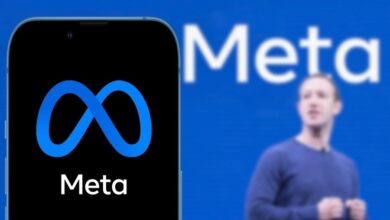Meta's Latest Open Source Code Generator Raises Excitement and Concerns
Explore the Pros and Cons of Meta's New Open-Source Code Llama AI Model

Meta has taken a bold step in the world of generative AI with the release of Code Llama, a machine learning model capable of generating and explaining code in plain English. Similar to other AI-driven code generators like GitHub Copilot and Amazon CodeWhisperer, Code Llama can assist programmers by completing code and debugging across various programming languages, including Python, C++, Java, and more.
“At Meta, we believe that AI models, but large language models for coding in particular, benefit most from an open approach, both in terms of innovation and safety,” Meta wrote in a blog post shared with TechCrunch. “Publicly available, code-specific models can facilitate the development of new technologies that improve peoples’ lives. By releasing code models like Code Llama, the entire community can evaluate their capabilities, identify issues and fix vulnerabilities.”
Code Llama is based on the Llama 2 text-generating model and has been trained using a mix of publicly available sources from the web, emphasizing the subset of training data containing code. To ensure better quality, Code Llama underwent more extensive training to learn the nuances between code and natural language, resulting in various models ranging from 7 billion to 34 billion parameters.
“Code Llama is designed to support software engineers in all sectors — including research, industry, open source projects, NGOs and businesses. But there are still many more use cases to support than what our base and instruct models can serve,” the company writes in the blog post. “We hope that Code Llama will inspire others to leverage Llama 2 to create new innovative tools for research and commercial products.”
Although Code Llama holds great promise for accelerating coding tasks, potential issues have emerged. Studies have shown that AI tools can inadvertently introduce security vulnerabilities in applications. Moreover, some code-generating models might use copyrighted code, leading to legal complications.
During internal testing, Code Llama exhibited a few shortcomings. While it wouldn’t generate ransomware code directly, it did produce objectionable code when phrased in a benign manner. Recognizing these limitations, Meta encourages developers to perform safety testing and tuning tailored to their specific applications before deploying Code Llama.
Despite these concerns, Meta has placed minimal restrictions on the deployment of Code Llama, allowing developers to use it for both research and commercial purposes, as long as it’s not used maliciously. The company hopes that Code Llama will inspire the creation of innovative tools for various industries and projects, bridging the gap between human language and programming code. However, the excitement around this AI model is accompanied by valid concerns about its potential impact on security and intellectual property.




